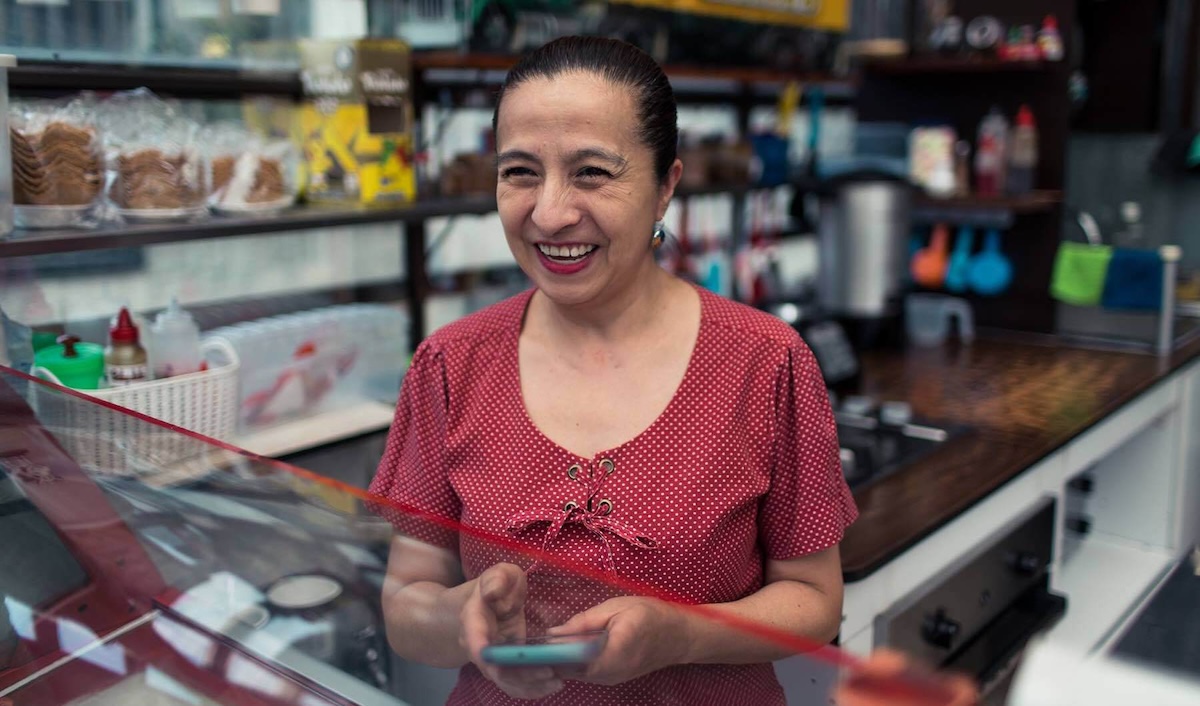TGIF, Agents of Impact!
🔌 Get Plugged In: Better, cheaper and faster climate impact. On the next Plugged In, climate investor Stonly Blue of Third Sphere joins host Sherrell Dorsey to discuss the challenges and opportunities of investing in climate hardware. Join other Agents of Impact live on LinkedIn, Wednesday, May 15, at 10am PST / 1pm EST / 6pm London. RSVP.
In today’s brief:
- Rights and responsibilities of asset owners
- Ava DuVernay changes the narrative
- Carbon removal tech takes shape
🗣 Rights and responsibility. With deep pockets and long time horizons, sovereign wealth funds and other asset owners were the “new kings” of the Milken Institute’s swanky annual summit in LA this week. With the clock ticking on their 10-year funds, and a bleak market for acquisitions or public offerings, private equity and venture capital funds were on the hunt for allocators with “time to play with,” according to The Information’s Cory Weinberg. The chatter at Milken was less about grand strategies, reported Weinberg, and more about “financial tactics to distribute cash or kick the can down the road by selling stakes on the secondary markets or spinning up continuation funds.” Not the loftiest of conversations. Abu Dhabi sovereign wealth fund Mubadala Capital and the Qatar Investment Authority, two of sponsors of teh Milken conference, at least seemed willing to play along.
Impact investors attract long-term investors for a different reason. Limited partners with an appetite for duration, above-average risk tolerance and diversified exposure to the market can’t ignore existential risks like climate and inequality. They also have the patience to fund solutions. For examples, Institutional investors are getting behind the trio of $500 million impact funds for climate resilience featured on this month’s Liist. In Singapore, Sweef Capital, a first-time woman-led fund, found an anchor investor in Danish pension scheme Paedagogernes Pension, reports Maria Braun, a consultant for the UN’s Economic and Social Commission for Asia and the Pacific, ahead of this week’s Feminist Finance Forum in Bangkok. And local impact funds Benefit Chicago, Boston Impact Initiative and Cleveland’s Readiness Fund for Good Jobs are tapping local family offices and foundations for time- and impact-aligned capital, as Roodgally Senatus reports from ImpactPHL’s Total Impact Summit.
With great check-writing power comes great responsibility. Down the road from Milken at the national conference of Mission Investors Exchange, the clock was ticking on another set of asset owners. Philanthropic asset owners who profess urgency on issues like climate and wealth inequality were called to task for… a lack of urgency (read our roundup of MIE curtain raisers and contributions). “Look at the pace in which people move. Philanthropy’s clock is the calendar year,” said Hyphen’s Archana Sahgal. “What does it take to punch that and make it faster?” Slow investment decision-making timelines mean foundations “miss major opportunities to drive positive change for populations for whom the markets have not worked,” writes Upstart Co-Lab’s Laura Callananin a guest post. Philanthropies have the “right and responsibility” to do more to counter right-wing attacks on diversity, equity and inclusion, Tonya Allen, head of McKnight Foundation, told me. Asset owners are on the clock. – Dennis Price
The Week’s Podcasts
🎧 This Week in Impact. Host Brian Walsh takes up ImpactAlpha’s top stories with editor David Bank. Up this week: The divergent vibes at Mission Investors Exchange and the Milken Institute Global Conference. Plus: a call for sustainable mining for minerals essential to the energy transition.
- Listen to the new episode of This Week in Impact. Get the podcast in your feed by subscribing on Apple or Spotify.
- Agents of Impact. On this week’s Agents of Impact podcast, VertueLab’s Aina Abiodun joins Sherrell Dorsey to discuss how the VertueLab accelerator is using a racial justice lens to build an inclusive climate tech ecosystem in the US Pacific Northwest. Listen.
The Week’s Agent of Impact
Ava DuVernay: Changing the narrative in Hollywood and beyond. “We’re a narrative-change studio in a town that is in a time of flux,” director Ava DuVernay told Ford Foundation’s Roy Swan at the closing session of this week’s Mission Investors Exchange conference in Los Angeles. DuVernay’s latest film, “Origin,” is a powerful reflection on the persistence of hierarchy across history and cultures, told through the story of how Isabel Wilkerson wrote her 2020 book, “Caste.” The story of how DuVernay made the movie is equally powerful. “There is no way I can walk into a studio and say, ‘I want to make that film,’” DuVernay said. “I don’t want to wait 10 years to make one movie. I want to make 10 movies in 10 years.” To help her move quickly, the Ford Foundation committed $10 million and other impact-oriented investors chipped in another $30 million to make the movie outside of the studio system (DuVernay’s nonprofit studio, Array, committed $5 million of its own).
Last month’s announcement by Jeff Skoll that he is shuttering Participant Media makes even more urgent the need for new models for social-change moviemaking. How “Origin” came together is the subject of a Harvard Business School case study. DuVernay has been assembling the pieces at Array’s four-building studio in LA’s historic Filipinotown. Array 101 offers educational materials around the studio’s films to schools for free. Array Crew is a database of more than 10,000 diverse film professionals in at least 650 job categories that is used by nearly every studio in town. Moviegoers inspired to help others see “Origin” can cover the cost of their tickets at Seat 16, originally aimed at 16-year-olds and now expanded to others. “We have people who just feel uncomfortable even having conversations around race, class, caste, any of it,” DuVernay told ImpactAlpha. “If we become more fluent and comfortable and aware, that’s how society moves forward.” In the wake of Participant’s closure, DuVernay and dozens of other filmmakers, actors and activists this week issued an open letter to Hollywood studios urging them to prioritize social-impact storytelling. DuVernay’s call to action to the funders and foundations at MIE: “I invite you all, if it’s not us, to really think about the opportunities where you are to lean into narrative change. Because they’re there and it’s powerful. Be brave.”
- Keep reading, “Changing the narrative in Hollywood and beyond,” by David Bank on ImpactAlpha and share the story on Instagram.
The Week’s Dealflow
Deal spotlight: Carbon removal tech takes shape. This week, the world’s largest direct air capture facility kicked into gear in Iceland. Built by Switzerland-based Climeworks, the geothermal powered Mammoth plant will suck in some 36,000 tons of carbon from the atmosphere annually and store it in crystallized form in the bedrock below. (As Bloomberg depressingly noted, that is still less than a minute’s worth of humanity’s emissions). While Climeworks has a head start, $650 million in private funding and a coveted Department of Energy grant, a buzzy field of challengers is pursuing different approaches to removing CO2 and keeping it locked away for the long term.
- X factor. The diversity and innovation can be seen in the 20 finalists announced this week for the Musk Foundation’s $100 million XPRIZE Carbon Removal (XPRIZE divides the approaches into Air, Rocks, Land, and Oceans). US-based startups Mati and Lithos use nutrient-rich basalt to absorb carbon and enrich soil. China’s Yuanchu is developing direct air mineralization technology, which it says will cost less than $200 per ton of captured CO2. In the land category, US-based Climate Robotics, Indian startup Takachar and France-based Net Zero are turning agricultural waste into biochar, a soil amendment and carbon store. Oceans absorb up to one-third of human-made emissions. Canada’s Planetary and US-based Ebb Carbon boost the natural carbon absorption of oceans and increase their alkalinity, while Kelp Blue farms giant carbon-sequestering kelp in the shores off Namibia, New Zealand and Alaska.
- Commercial scale. The XPRIZE finalists were whittled down from over 1,300 global teams, and assessed on their operations, sustainability and cost (a chief drawback of carbon removal technology). The finalists must remove 1,000 tons of CO2 in the final stage of the competition, which will wrap up next year. Not included in the competition: natural carbon sequestration approaches like reforestation and restoring wetlands, which many environmental advocates favor (see, “How Big Tech can restore forests – and credibility in voluntary carbon markets”).
- Go with the dealflow. Share this post and check out the full roundup of ImpactAlpha’s deal reporting this week.
The Week’s Talent and Jobs
💼 See and share more than a dozen new impact jobs posted this week on ImpactAlpha’s Career Hub and view hundreds of more jobs in impact investing and sustainable finance. Have a job listing to post? Submit it here.
Amy Bell, previously with The Cook’s Nook and Whole Foods, joined MCE Social Capital as chief financial officer… Alex McCarthy (who will join DBL Partners), Christiana Lee (who will join Spring Lane Capital) and Aakash Kotak (who will join Builders Fund) are among 25 graduate student Mosaic Fellows selected by Impact Capital Managers… In an open letter, George Clooney, Regina King, Ava Duvernay and other actors, filmmakers and activists called on Hollywood studios to produce more stories and projects that prioritize social impact following the closure of Participant (for context, see “Shutdown of Participant challenges other investors to drive impact through film”).
Tom Kalil, previously chief innovation officer of Schmidt Futures, became CEO of Renaissance Philanthropy… Lauren Hadi, previously with the Schott Foundation for Public Education, joined the Decolonizing Wealth Project as vice president of resource mobilization… Nicole Sonderegger, a former energy programs director at Groundswell, joined Opportunity Finance Network as vice president of climate and environmental programs… IBM promoted Christina Shim to chief sustainability officer, replacing Wayne Balta who is retiring… QBE Insurance promoted Nicola Schroder to group head of sustainability… David Talbot, previously with the Milken Institute, joined the Indo-Pacific Partnership for Prosperity as executive director.
Anuradha Shetty, previously with Soros Economic Development Fund, joined Bramble Partners as an investment partner… S2G Ventures, which recently spun out from Builders Vision, appointedVikram Sharma, formerly a senior adviser with Baird Capital, as operating partner… HCAP Partners promotedJessica Kim, who joined HCAP as an Impact Capital Managers Mosaic Fellow, and Ben Consoli to vice presidents on its investment team. Chenjing Wang, previously with Morgan Stanley, joined as senior associate… Malcolm Sullivan, previously with Greenhouse Software, joined Social Finance as senior talent associate… Quantified Ventures hired Ana Koerner, previously with Wellsky, as a senior associate… Liminal Advisors’ Mark Handjoined the board of directors of the Texas Center for Employee Ownership… Maya Rotstein, a master of global affairs candidate at the University of Toronto, joins Rally Assets as an impact investing intern.
That’s a wrap. Have a wonderful weekend.
– May 10, 2024











